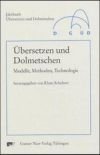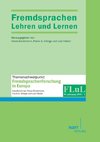
Genghis Khan
Source: Wikipedia. Pages: 35. Chapters: Borjigin, Descent from Genghis Khan, Ejin Horo Banner, The Secret History of the Mongols, Family tree of Genghis Khan, Mausoleum of Genghis Khan, Börte, Tomb of Genghis Khan, Organization of the Mongol Empire under... Viac o knihe
Produkt je dočasne nedostupný
15.31 €
bežná cena: 17.40 €
O knihe
Source: Wikipedia. Pages: 35. Chapters: Borjigin, Descent from Genghis Khan, Ejin Horo Banner, The Secret History of the Mongols, Family tree of Genghis Khan, Mausoleum of Genghis Khan, Börte, Tomb of Genghis Khan, Organization of the Mongol Empire under Genghis Khan, Ikh Khorig, Yesügei, Ong Khan, Jamukha, Hoelun, Temüge, Genghis Khan Equestrian Statue, Chormaqan, Khulan, Bekhter, Mukhali, Khajiun, Belgutei, Chingissid, Minhaj al-Siraj Juzjani, Mingghan, Temulin. Excerpt: Genghis Khan ( or ,; Mongol: ; 1162? - August 1227), born Temujin and also known by the temple name Taizu, was the founder and Great Khan (emperor) of the Mongol Empire, which became the largest contiguous empire in history after his death. He came to power by uniting many of the nomadic tribes of northeast Asia. After founding the Mongol Empire and being proclaimed "Genghis Khan", he started the Mongol invasions that would result in the conquest of most of Eurasia. These included raids or invasions of the Kara-Khitan Khanate, Caucasus, Khwarezmid Empire, Western Xia and Jin dynasties. These campaigns were often accompanied by wholesale massacres of the civilian populations - especially in Khwarezmia. By the end of his life, the Mongol Empire occupied a substantial portion of Central Asia and China. Before Genghis Khan died, he assigned Ögedei Khan as his successor and split his empire into khanates among his sons and grandsons. He died in 1227 after defeating the Western Xia. He was buried in an unmarked grave somewhere in Mongolia at an unknown location. His descendants went on to stretch the Mongol Empire across most of Eurasia by conquering and/or creating vassal states out of all of modern-day China, Korea, the Caucasus, Central Asian countries, and substantial portions of modern Eastern Europe, Russia and the Middle East. Many of these invasions resulted in the large-scale slaughter of local populations, which have given Genghis Khan and his empire a fearsome reputation in local histories. Mongol campaigns may have resulted in the deaths of 40 million people." Beyond his military accomplishments, Genghis Khan also advanced the Mongol Empire in other ways. He decreed the adoption of the Uyghur script as the Mongol Empire's writing system. He also promoted religious tolerance in the Mongol Empire, and created a unified empire from the nomadic tribes of northeast Asia. Present-day Mongolians regard him as the founding father of Mongolia. Temüjin was related on hi
- Vydavateľstvo: Books LLC, Reference Series
- Formát: Paperback
- Jazyk:
- ISBN: 9781155197364



 Anglický jazyk
Anglický jazyk 
 Nemecký jazyk
Nemecký jazyk 

 Ruský jazyk
Ruský jazyk 



